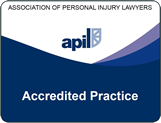Every year, millions of individuals worldwide confront the challenges posed by brain injuries, navigating the management of their symptoms, recovery process, and adaptation to any lasting difficulties they may experience as a consequence.
Brain Injury Awareness Month serves as a period during which we acknowledge the resilience of these individuals and the communities that stand by them. It presents an opportunity to heighten awareness surrounding various forms of traumatic brain injuries and to educate on preventative measures to mitigate their occurrence.
What are the different types of brain injury?
The brain stands as a fundamental component of our physiology, serving as the central command centre that regulates all bodily functions round-the-clock, even during periods of rest. Any form of brain injury warrants serious attention, as neglecting even minor injuries could potentially lead to more severe complications.
Similar to injuries affecting any other part of the body, brain injuries span a spectrum from mild to severe. As Personal Injury Solicitors, we frequently encounter cases where brain injuries significantly impact an individual’s quality of life, and we possess the expertise in managing claims for such instances. Examples include:
- Traumatic Brain Injuries (TBI)
- Acquired Brain Injuries (ABI)
- Congenital Brain Damage
- Hypoxic Brain Injury
What are the symptoms of a brain injury?
Because of the intricate nature of the brain, symptoms of injury can be equally intricate. Indications of a brain injury can manifest in various forms. While some individuals may exhibit a single symptom, others might encounter several issues following an accident.
- Difficulty in communicating (impairment of speech, or limb function)
- Trouble in concentrating or retaining information
- Changes in personality
- Mood swings
- Dizziness or problems with balance
- Altered senses – smell/taste
- Visual impairment
- Sexual dysfunctions
- Headaches
- Sensitivity to light or sound
It is important to recognise that many symptoms of brain injury can resemble those of other medical conditions, or even be attributed to benign factors such as fatigue or stress. Therefore, while it is crucial to take any symptoms seriously, it is also advisable not to overly fret if one of these symptoms arises without any history of head injury or accident.
What can cause a brain injury?
Brain injuries are frequently associated with high-impact accidents such as road traffic collisions, falls from considerable heights, and incidents involving heavy or falling objects. However, they can also occur in less dramatic scenarios, including slipping, tripping, and falling in public places, falls from horses, exposure to toxic substances, and electric shocks.
In certain instances, a brain injury may stem from medical negligence, encompassing failures in diagnosis, misdiagnosis, delays in treatment, and surgical errors.
Brain Injury Awareness Month – Help and Resources
We urge all readers to take action during Brain Injury Awareness Month to raise awareness of brain injuries throughout the UK and to offer support to the organisations and individuals who require it.
Support doesn’t always have to involve financial contributions. Advocating for policies that advocate brain injury prevention and support, along with educating yourself on the topic, can have a significant impact. Even something as simple as reminding a friend to “buckle up” can make a difference.
Listed below are several organisations that offer invaluable support, resources, and research opportunities for individuals and families affected by brain injuries in the UK.
- Headway – The Brain Injury Association (https://www.headway.org.uk/)
- Brain Injury Rehabilitation Trust (BIRT) (https://www.thedtgroup.org/brain-injury)
- UK Acquired Brain Injury Forum (UKABIF) (https://ukabif.org.uk/)
- Brain Tumour Research (https://www.braintumourresearch.org/)
- Child Brain Injury Trust (CBIT) (https://childbraininjurytrust.org.uk/)
- Brain Research UK (https://www.brainresearchuk.org.uk/)
- Brain and Spine Foundation (https://www.brainandspine.org.uk/)
- The Brain Charity (https://www.thebraincharity.org.uk/)
How do I make a brain injury claim?
Experiencing an accident that wasn’t your fault can be deeply distressing. However, when it results in a severe brain injury for you or a loved one, the effects can be profoundly life-altering.
If you find yourself in this situation, it’s crucial to understand that you are entitled to pursue compensation for your brain injury. Whilst no amount of compensation can undo what has happened, it can provide tangible support as you strive to regain stability in your life.
Stonehewer Moss Solicitors are an APIL accredited personal injury law firm based in Cheshire, providing services nationwide. Take the first step by speaking to one of our specialist injury solicitors with a free, no-obligation consultation.
To learn more about No Win No Fee claims, watch this short video.
Talk to our claims solicitor
Call us on freephone 0800 434 6544 or 01606 87 22 00
Email us at info@stonehewermoss.co.uk


